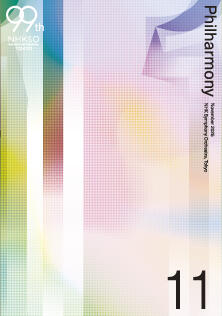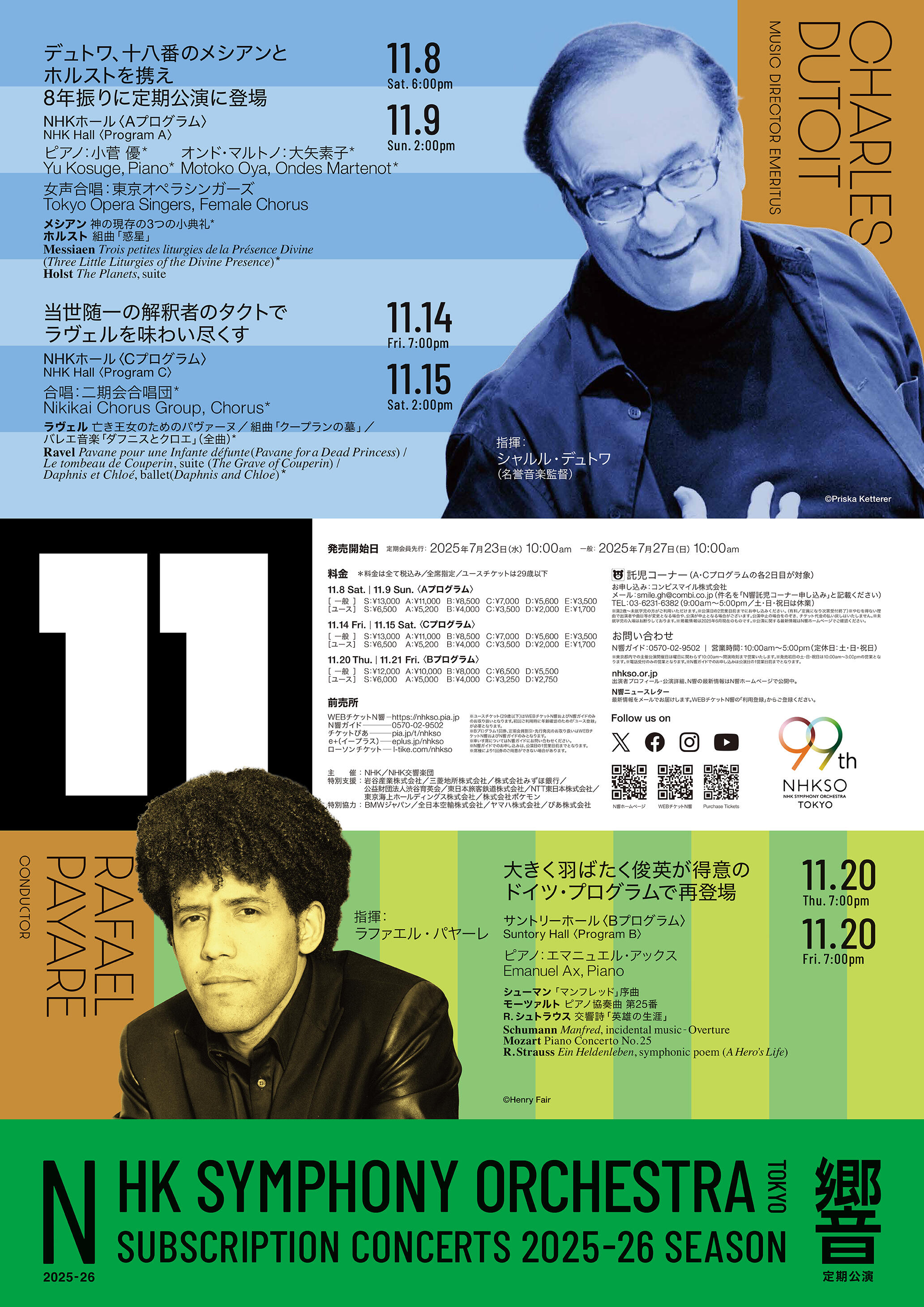- Home
- Concerts
- Subscription Concerts
- Program A
- No. 2048 Subscription (Program A)
No. 2048 Subscription (Program A)
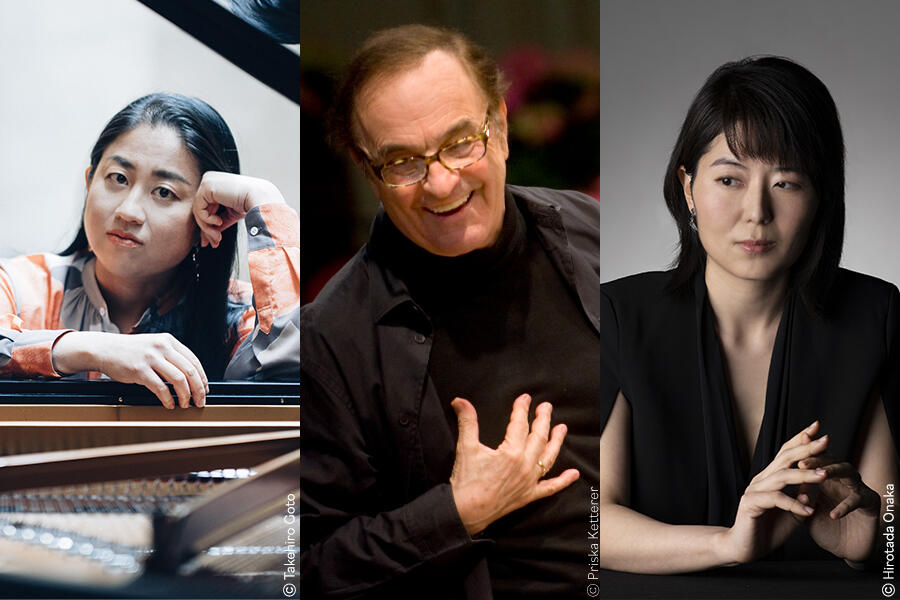
Program
Messiaen / Trois petites liturgies de la Présence Divine (Three Little Liturgies of the Divine Presence)*
Born into a literary family in Avignon, France at the dawn of the 20th century,Olivier Messiaen (1908–1992) is certainly one of the most unique composers in history. Distancing himself from the neo-classical mainstream, he assimilated influence from Claude Debussy (1862–1918) but also Igor Stravinsky (1882–1971) and Béla Bartók (1881–1945) to create a highly individual music language. Messiaen’s compositions are characterized above all by the deep devotion to Catholicism, the incorporation of noted birdsongs he revered, and a sound color particular to him who had complex synesthesia (musical notes, chords and keys made him see certain colors). His great interest in Indian music also contributed to rhythmical innovations found in his works.
Trois petites liturgies de la Présence Divine (Three Little Liturgies of the Divine Presence), composed in 1943–1944 during World War II, shares the solo instruments—piano and ondes Martenot—with Messiaen’s representative work Turangalîla-Symphonie (1946–1948). The virtuosic piano writing in both pieces is inspired by his future wife and exceptional pianist Yvonne Loriod. As for the ondes Martenot, Messiaen was fascinated by the unearthly tone color of this electronic keyboard instrument invented in 1928 by Maurice Martenot. Written by Messiaen himself, the text of the Three Little Liturgies based on Solomon’s “Song of Songs” and others is sung by a female chorus.
I Antienne de la Conversation intérieure (Antiphon of the Interior Conversation), in ABA form, describes God’s presence in us. Opened with birdsongs on piano, this movement concludes in A major, a key of serene, naïve joy for the composer. II Séquence du Verbe, Cantique Divin (Sequence of the Word, Divine Canticle), in strophic form, praises God’s presence in Himself (“He is alive, he is present, and He speaks to Himself in Himself!”). III Psalmodie de l’Ubiquité par amour (Psalmody of the Ubiquity of Love), in ABA form, is about God’s presence in all things. The chorus chants mentioning different times of man, planet, mountain and insect, sings, “You are close, you are distant, you are the light and darkness, you are so complex and so simple (…). The rainbow of Love, that is you, the only bird of Eternity, that is you!”
[Kumiko Nishi]
Holst / The Planets, suite Op. 32
Gustav Holst (1874–1934) is one of the most important English composers active around the turn of the 19th and 20th centuries alongside his close friend Ralph Vaughan Williams, the same age. And the former’s fame depends to a large extent on his orchestral suite The Planets, a blockbuster hit in music history since its success at the private premiere in 1918 in London followed by public partial premieres in 1919 and then the complete first public performance in 1920.
Born into a musical family in Cheltenham, England, Holst was first trained as a pianist (his grandfather was composer and harp teacher, and his father was organist and pianist). He began to play the trombone for the cure of asthma and compose as well in his early teens, and a neuritis in his right arm would soon shut the door on his career as a professional pianist. From his school days at the Royal College of Music until 1903, the young composer earned his living mainly as an orchestral trombone player (incidentally, he performed under the baton of Richard Strauss), thus learning by experience what orchestration is. Also, worthy of special mention is that, as with Messiaen, Holst was deeply absorbed by Hindu culture and philosophy. He even studied Sanskrit and left us several settings of Sanskrit texts’ translations as represented by the chamber opera Savitri (1908).
The Planets, composed in 1914–1916 and orchestrated in 1917, has been rarely performed completely due to its colossal instrumentation including an organ and even human voices. The presence of a wordless female chorus at the finale immediately reminds us of Claude Debussy’s orchestral suite Nocturnes (1899) that Holst listened to in London under the baton of the composer in 1909.
The seven movements of The Planets correspond to seven planets of the Solar System except for the Earth, as the composer’s source of inspiration was astrology rather than astronomy. I Mars, the Bringer of War, dissonant and belligerent, starts with an ostinato (persistently repeated phrase) in quintuple meter on harps, timpani and strings with the col legno technique of striking the strings with the bow’s wood. II Venus, the Bringer of Peace is an unwarlike slow movement, and III Mercury, the Winged Messenger is a scherzo of which the bitonal start (in E and B-flat majors) is mercurial and elusive. IV Jupiter, the Bringer of Jollity is in C major. After the dance-like third theme, the Andante section lets us hear the majestic fourth theme, the best-known moment of The Planets. V Saturne, the Bringer of Old Age is a processional, while VI Uranus, the Magician is a Paul-Dukas-style scherzo. VII Neptune, the Mystic is, again, in quintuple meter. The bitonal start (this time in E and G-sharp minors) and the fading-out conclusion with the chorus alone evoke the mysteriousness of this most distant planet from the Earth.
[Kumiko Nishi]
Artists
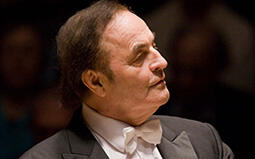 ConductorCharles Dutoit
ConductorCharles Dutoit
Charles Dutoit has captivated audiences throughout the world for over six decades with his charismatic, elegant, passionate and idiomatic interpretations. He is Music Director Emeritus of the NHK Symphony Orchestra after having served as its Principal Conductor (1996–1998) and Music Director (1998–2003).
Born in Lausanne in 1936, he commenced his career as a violinist, before participating in the conducting masterclasses given by Herbert von Karajan at the Lucerne Festival. He furthered his studies by attending the legendary Ernest Ansermet’s rehearsals in Geneva. Under Ansermet’s influence, he was able to cultivate his apprenticeship of the Ballets Russes composers: Stravinsky, Ravel and Debussy. In 1959, he made his professional conducting debut with the Orchestre de Chambre de Lausanne and Martha Argerich as soloist. During his first trip to the United States, he met Pierre Monteux and Charles Munch at the Tanglewood Music School.
Former Artistic Director and Principal Conductor of the Royal Philharmonic Orchestra, he enjoyed an artistic collaboration with The Philadelphia Orchestra for thirty-two years. He was Music Director of the Orchestre symphonique de Montréal for twenty-five years and held the same position with L’Orchestre National de France for ten years. His interest in mentoring young artists has led to positions as Music Director of the Pacific Music Festival in Sapporo and the Verbier Festival Orchestra.
His latest collaboration with the NHK Symphony Orchestra took place in October 2024 when he performed the program around Stravinsky’s Rite of Spring for the NHK Music Festival. This time is his first appearance at the orchestra’s subscription concerts in eight years with two programs featuring Messiaen and Holst as well as celebrating the 150th Anniversary of Ravel’s birth.
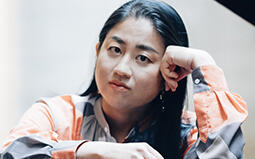 Piano*Yu Kosuge
Piano*Yu Kosuge
Born in 1983, Berlin-based Japanese pianist Yu Kosuge continues to develop a distinguished international career with her superlative technique, sensitivity of touch, and profound understanding of the music she plays. After her official concert debut at age 9, she moved to Europe in 1993 to study in Hannover and Salzburg, and received great support and inspiration from András Schiff. She made her recital debut at New York’s Carnegie Hall in 2005 and at the Salzburger Festspiel the following year. In 2010, she substituted for Ivo Pogorelich at the same festival performing with the CAMERATA Salzburg led by Philippe Herreweghe.
She regularly performs with many leading orchestras including the NDR Elbphilharmonie Orchester, hr-Sinfonieorchester Frankfurt, Konzerthausorchester Berlin, Orchestre Philharmonique de Radio France and BBC Symphony Orchestra alongside renowned conductors including Seiji Ozawa, Lawrence Foster, Sakari Oramo, Osmo Vänskä, Vasily Petrenko and Dennis Russell Davies.
At her most recent collaborations with the NHK Symphony Orchestra in 2022, she served as the soloist at Ravel’s concerto in G and Beethoven’s Emperor Concerto. Experienced at modern and contemporary works as well, she will play a pivotal role this time at Messiaen’s grand cantata Trois petites liturgies de la Présence Divine with Charles Dutoit conducting the NHK Symphony Orchestra.
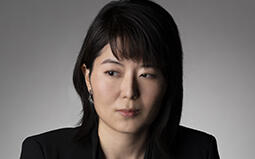 Ondes Martenot*Motoko Oya
Ondes Martenot*Motoko Oya
Born in the UK, Japanese ondist Motoko Oya was fascinated by the sound of the ondes Martenot while studying at the Tokyo University of the Arts’ Musicology Department. She has since approached, as a performer and researcher, this electronic keyboard instrument invented by Maurice Martenot (1898–1980) in France. During her studies at Conservatoire de Paris, she participated in a world tour of the Orchestre du Conservatoire National Supérieur de Musique de Paris led by Zsolt Nagy playing Messiaen’s Trois petites liturgies de la Présence Divine, the piece she will perform with the NHK Symphony Orchestra at the coming concert. She graduated from the Conservatoire de Paris’s Ondes Martenot department as a top student and obtained her doctoral degree in 2012 from the Tokyo University of the Arts with her research on M. Martenot.
She studied ondes Martenot under Takashi Harada and Valérie Hartmann-Claverie, and musicology under Takashi Funayama and Fuyuko Fukunaka. Her performing fields range in genres: she was an ondist at the Japanese premiere of the complete version of Messiaen’s opera Saint François d’Assise in 2017, and she participated in the recording of Ryuichi Sakamoto’s soundtrack for the American movie The Revenant in 2016.
This is her first collaboration with the NHK Symphony Orchestra since August 2018.
 Female ChorusTokyo Opera Singers
Female ChorusTokyo Opera Singers
Tokyo Opera Singers was formed in 1992 with mid-career and young vocalists active in Tokyo in response to Seiji Ozawa’s request to establish a world-level chorus in Japan for a production of Wagner’s opera Der fliegende Holländer (The Flying Dutchman). Since the year of the founding, the chorus has performed almost every year at the Saito Kinen Festival Matsumoto (today Seiji Ozawa Matsumoto Festival), while working with visiting opera companies and orchestras including the Wiener Philharmoniker (under Simon Rattle and Seiji Ozawa), the Chicago Symphony Orchestra (Riccardo Muti) and the Bayerische Staatsoper (Wolfgang Sawallisch). The chorus has also appeared at the Spring Festival in Tokyo often under the baton of Riccardo Muti, the Edinburgh International Festival (1999), the China Shanghai International Arts Festival (2018), “Meet in Beijing” International Arts Festival (2020) and others.
Since its debut with the NHK Symphony Orchestra in 2009, the chorus has regularly worked with the orchestra. Most recently, its female chorus shared the stage with Fabio Luisi and the orchestra for Mahler’s Symphony No. 3 in April 2025. At the coming concert, the female chorus will join Charles Dutoit conducting the orchestra for Messiaen’s grand cantata of which the lyrics were written by the French composer himself as well as Holst’s suit The Planets which is rarely played complete.
Download
Ticket
Single Tickets Release Date
Pre-sales for Subscribers:Wednesday, July 23, 2025 10:00am
*about subscribers
Sale to General Public:Sunday, July 27, 2025 10:00am
Price
| S | A | B | C | D | E | |
|---|---|---|---|---|---|---|
| Ordinary Ticket | 13,000 | 11,000 | 8,500 | 7,000 | 5,600 | 3,500 |
| Youth Ticket | 6,500 | 5,200 | 4,000 | 3,500 | 2,000 | 1,700 |
*tax included
*Subscribers receive a 10% discount (Available at NHKSO WEB Ticket and N-Kyo Guide)
*For wheelchair-accessible seats, please refer to the N-Kyo Guide
*Please note that single tickets may not be available depending on ticket price range
Youth Tickets
Youth Tickets are great options for those of 29 years old and younger
Subscription tickets
Release Date
ANNUAL SUBSCRIPTION TICKETS/
SEASONAL SUBSCRIPTION TICKETS (AUTUMN)
Sun., July 13, 2025 10:00am
[For Subscribers: Sun., July 6, 2025 10:00am]
Where to buy
NHKSO WEB Ticket | Sat., November 8 (In English / Seats not selectable on the English site)
NHKSO WEB Ticket | Sun., November 9 (In English / Seats not selectable on the English site)
NHKSO WEB Ticket (In Japanese / Seats selectable)
N-Kyo Guide (Purchase by telephone only)
Other Ticket Agents
Broadcast
 NHK-FMBest of Classic
NHK-FMBest of Classic
No. 2048 Subscription (Program A)
Thursday, Nov 27, 2025 7:35PM - 9:15PM
Program:
Messiaen / Trois petites liturgies de la Présence Divine (Three Little Liturgies of the Divine Presence)*
Holst / The Planets, suite Op. 32
Conductor:Charles Dutoit
Piano*:Yu Kosuge
Ondes Martenot*:Motoko Oya
Female Chorus:Tokyo Opera Singers
Recorded:November 8, 2025 NHK Hall
Organized by: NHK (Japan Broadcasting Corporation) / NHK Symphony Orchestra, Tokyo
*Repertoire, conductor, soloists and program order are subject to change without notice.
*Pre-school children are not allowed in the concert hall.

